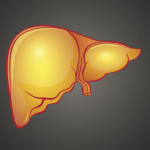
 Good news for people living with HIV and asthma, bronchitis and chronic obstructive pulmonary disease (COPD). The inhalable steroid beclomethasone can be used at the same time as HIV protease inhibitors without the increased risk of adrenal suppression, according to a drug interaction study conducted in HIV-negative volunteers reported Thursday, March 8, at the 19th Conference on Retroviruses and Opportunistic Infections in Seattle.
Good news for people living with HIV and asthma, bronchitis and chronic obstructive pulmonary disease (COPD). The inhalable steroid beclomethasone can be used at the same time as HIV protease inhibitors without the increased risk of adrenal suppression, according to a drug interaction study conducted in HIV-negative volunteers reported Thursday, March 8, at the 19th Conference on Retroviruses and Opportunistic Infections in Seattle.
As explained by U.S. Food and Drug Administration (FDA) and National Institutes of Health (NIH) investigators who reported the data, people living with HIV and respiratory disease often require protease inhibitors and orally inhaled corticosteroids. Inhaled corticosteroids alone do not generally cause serious side effects because very little of the medication passes into the bloodstream. However, the combination of various protease inhibitors and inhaled fluticasone—one of the active ingredients in the popular Advair diskus and the intranasal product Flonase—has led to increased systemic fluticasone levels and multiple cases of adrenal gland insufficiency and Cushing’s syndrome (an overabundance of corticosteroids in the blood, leading to symptoms such as a fatty hump between the shoulders, a rounded “moon face,” high blood pressure, bone loss and possibly diabetes).
Beclomethasone, inhaled as either Qvar or Clenil or used intranasally as Beconase, has been considered a safe alternative. Though it is metabolized by the same enzyme system (CYP3A4) as fluticasone, it undergoes other important chemical breakdowns in the body, with only trace amounts of the steroid detectable in blood samples. These observations, the authors report, “suggest that systemic accumulation leading to significant adverse effects is unlikely even in the presence of a CYP3A4 inhibitor such as an HIV protease inhibitor.”
To determine whether or not beclomethasone has a discernible effect on the function of the adrenal glands—located above the kidneys and the producer of steroid hormones, notably cortisol, responsible for regulating sodium, potassium and water retention—the researchers treated 30 HIV-negative volunteers with twice-daily puffs of 160 microgram doses of the corticosteroid for 14 days. For the next three weeks, 10 patients were randomized to continue taking inhaled beclomethasone alone, 10 were allotted to combine beclomethasone with oral doses of Norvir (ritonavir), and the remaining 10 were assigned to a group combining beclomethasone with Norvir (ritonavir) plus Prezista (darunavir).
All study volunteers underwent a series of adrenocorticotropic hormone (ACTH) stimulation tests to measure peak cortisol levels. The test is frequently used to diagnose or exclude adrenal insufficiency.
There were no statistically significant reductions in daily basal (lowest) or peak (highest) cortisol levels at any time point—after 14 days of inhaled beclomethasone alone or both during and after the randomized part of the trial—and there were no significant difference between the three groups.
“Combined use of orally inhaled beclomethasone and [Norvir or Norvir-boosted Prezista] for 28 days does not cause significant adrenal suppression in HIV-negative healthy volunteers,” the authors conclude. “Inhaled beclomethasone is preferable to inhaled fluticasone for treatment of HIV-infected patients receiving [protease inhibitors].”
Advertisement
Advertisement
Advertisement






Comments
Comments